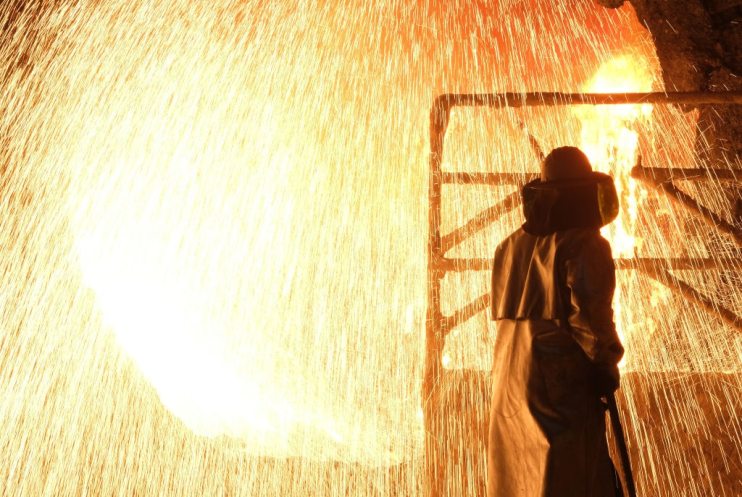UK falling behind EU rivals in green steel race, climate group warns

The UK is falling further behind its European rivals in the race to develop green steel plants, according to a leading climate advisory group.
The latest report from the Energy Climate and Intelligence Unit reveals the UK only has one planned green steel project in the works, compared to 38 in the European Union.
Meanwhile, ten plants on the continent have started to produce green steel already.
The data shows developments have barely improved since 2021 when the matter was previously researched, when the UK had no planned projects compared to 23 planned in the EU.
The one UK planned project is at British Steel’s Scunthorpe plant – which is part of the Zero Carbon Humber initiative.
The plant would use blue hydrogen, which is produced from gas through a process called steam methane reforming combined with carbon capture and storage to catch some, but not all, of the subsequent carbon emissions.
By contrast, the majority of EU projects use green hydrogen, which is made through electrolysis from renewable electricity, producing no emissions.
Over the past two years, the number of planned green hydrogen steel projects has doubled with, ten clean steel plants planned in Germany, of which nine are based on green hydrogen.
The government is reportedly in discussion with the steel industry about a support package that would help it transition to greener technologies, but no stipulations were included for electric arc furnaces or green steel in its agreed rescue package for British Steel.
Environmental think tank Green Alliance urged the government last month to bring in stringent emissions targets for the reported £600m bailout of the industry.
Green steel has become an increasingly significant factor in the push for net zero – with the metal essential for infrastructure development and economic growth.
Multiple companies including offshore wind giant Orsted and car manufacturer Volvo have become signatories of the Steel Zero initiative – making a public commitment to buy and use 50 per cent low emission steel by the end of the decade , setting a pathway to using 100 per cent net zero steel by 2050.
Volvo now only aims to sell only electric cars by 2030 while Ford has signed to a deal with Tata Steel’s Dutch arm to supply green steel.
ECIU’s energy analyst Jess Ralston called on the government to establish green steel plans ahead of the budget this month.
She said: “With car manufacturers starting to seek out sources of green steel to back their EV expansions, will the UK be in a position to compete? The gas crisis has spurred a dash from the US and EU to build green industries. Does the Chancellor have something up his sleeve to ensure the UK doesn’t fall further behind on steel?”
The lack of progress also attracted criticism from within the Conservative party.
Tory MP and member of the green-championing Conservative Environment Network Jo Gideon called for the government to do more to encourage steel producers to go green.
Gideon told City A.M:. “Steel is a core part of our industrial heritage and net zero future. Demand for green steel is expected to rise significantly due to net zero commitments. We should offer UK steel producers more support to capture some of this market and safeguard their long-term competitiveness.
“The Treasury should also publish firm proposals for a carbon border adjustment mechanism, so higher-carbon steel imports can’t undercut British green steel producers.”
When approached for comment, a government spokesperson said: “We are completely committed to securing a sustainable future for the UK steel sector – with funding schemes worth over £1.5bn to support sectors like steel to cut emissions and become more energy efficient.
“We are developing carbon capture and hydrogen production in the UK including by providing financial support, with this as a leading option to decarbonise industrial processes including steel.”